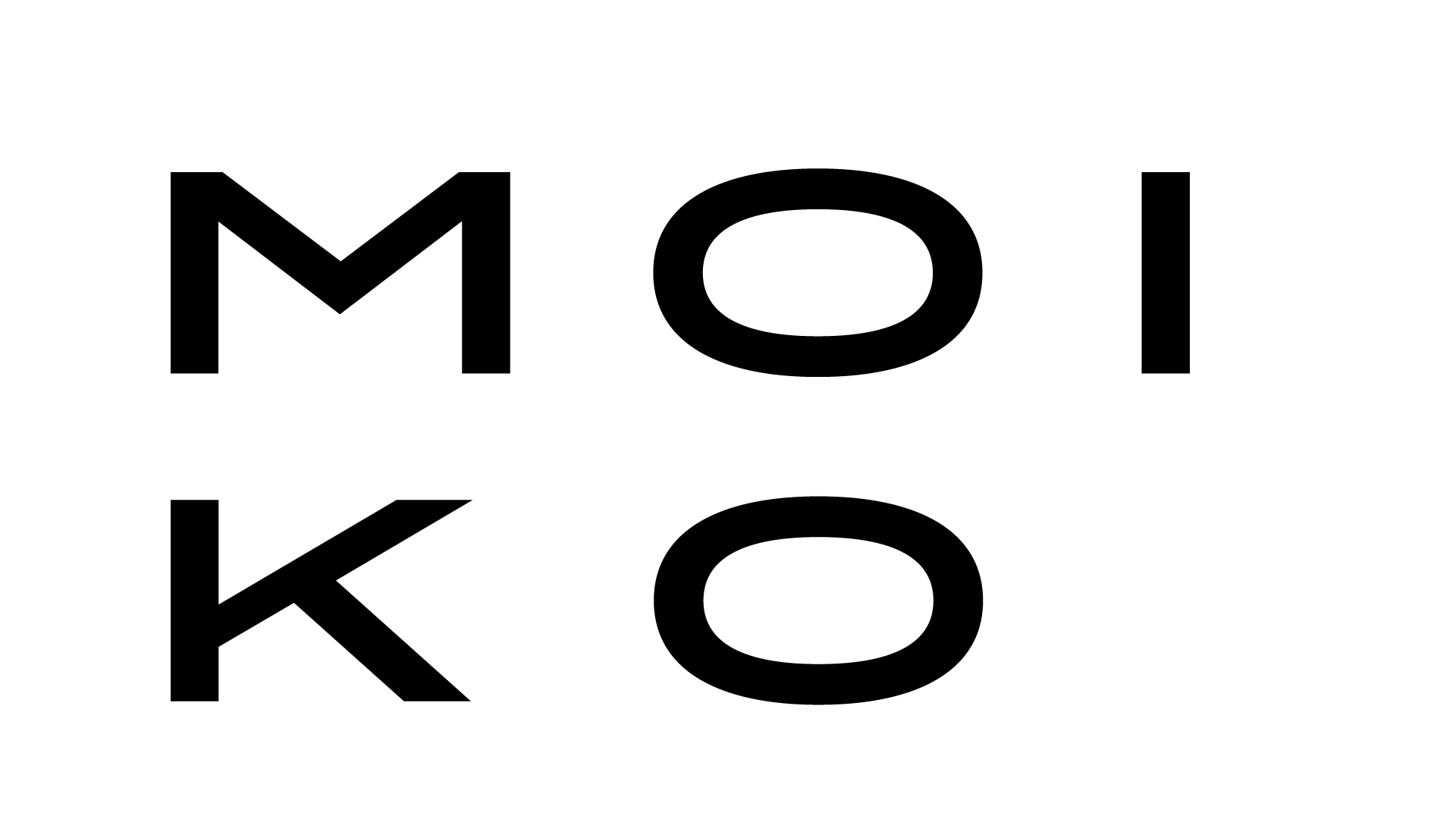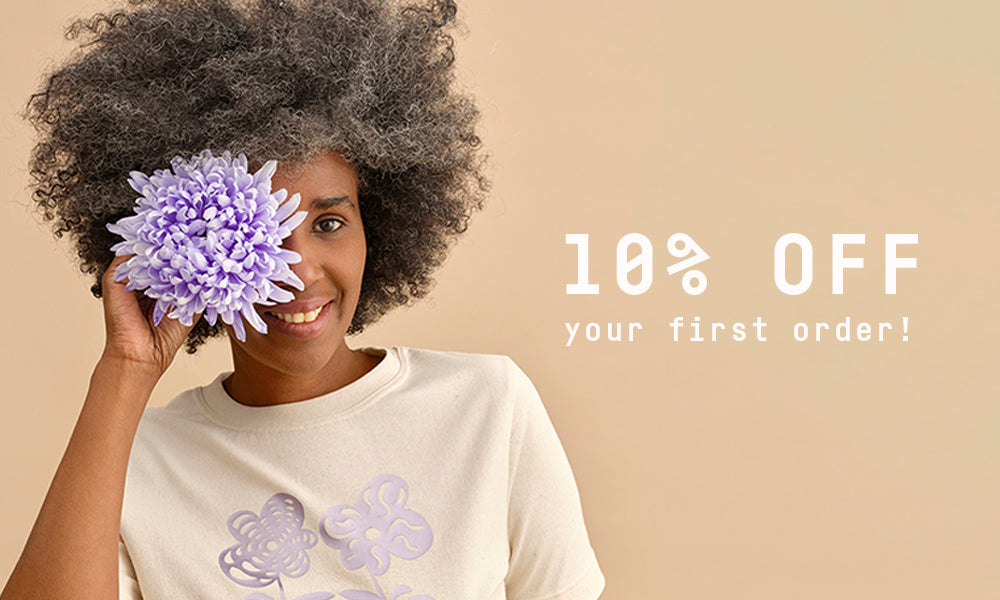RESPONSIBILITY
Here at Moiko, our decisions are always based on respect towards the environment, people and animals. Nature is our greatest source of inspiration, and we are doing our best to make sure our business strains the ecosystem as little as possible.
Our production is mainly local, either in Finland, the Baltic region or Europe. Short distances to producers reduce emissions from transport. Around a quarter of the energy used in the production of our domestic merino wool mittens comes from solar power. Our partners have also invested in recycling and minimising waste in their production.
We’ve also made it our priority to produce sustainable, quality products by using recycled materials whenever possible. The recycled fabric for our t-shirts is produced by Pure Waste, a Finnish company specialising in producing recycled materials.
Our goal is to create long-lasting, timeless products, and with proper care, they are just that. You can find a care guide on our website. The guide is there to help you take care of your Moiko product, so it’ll keep you warm and help you shine for years to come.
We’re aware of the fact that responsibility and sustainability require constant efforts, and there are of course things we can improve on and learn more about. We’re doing our best to continuously research and develop our business, always striving to find the most ethical option and partner for new products. Responsibility is a part of our product design from start to finish.
We are searching for recycled and renewable fibres and materials, which could in the future replace other, less sustainable materials.
For us, being as transparent and honest as possible is an essential part of all our operations, so we’re happy to answer any questions you may have. Please don’t hesitate to contact us at info@moiko.fi.
PRODUCTION
Production Locations and Countries
The closer production happens to our own location, the less emissions there are from the transport. For this reason, it’s important to us that different phases of our production happen close to us whenever possible.
Our biggest partner is Agtuvi Oy, a Finnish company located in Tampere. All of our merino wool mittens, gloves and scarves come from them. Over the years, the partnership has developed into friendship, which we are very grateful for.
It’s important for us to work with companies that really and truly care about sustainability and working conditions. We regularly visit our partners’ facilities (less during the pandemic, unfortunately), and do our utmost to keep communication open and honest.
We’re happy to answer any questions you may have about our production. Please don’t hesitate to contact us at info@moiko.fi.
MATERIALS
Merino Wool
The popularity and extensive use of merino wool nowadays is totally understandable; its superior properties are hard to miss. Merino wool is significantly thinner than sheep's wool and it can absorb up to 30% of its weight in moisture and still feel dry. It’s also amazingly warm, antibacterial and soft. High quality merino wool also doesn’t feel itchy at all.
The knitting mills we work with in both Finland and Lithuania buy their merino wool from an Italian spinning mill in Filivivi. The wool used by the mill meets Woolmark standards and the environmental requirements of the OEKO-TEX Standard 100 certificate. We are delighted to support this producer, who also upholds values that are important to us, such as equality in both wages and salaries and high safety standards.
The merino wool from which our products are made is mulesing-free. Mulesing is a procedure used by sheep farmers, particularly in Australia, to remove excess skin around the anus of young sheep, leaving scar tissue. This prevents parasitic flies and their larvae, which cause disease in sheep, from laying eggs in the skin. Mulesing sheep are more susceptible to parasites because their skin is more puffy than that of normal sheep. The procedure is often performed without anaesthesia and causes unnecessary pain and stress to the sheep. Mulesing is the best value for money for the producer and that is why it is so popular.
But then what is the alternative to mulesing, as sheep living with parasites is obviously not an option either? The merino wool used by our partners comes from New Zealand, South Africa and Argentina, where mulesing is banned. In these countries, sheep flock sizes are kept well below that of Australia, which in turn reduces the number of flies. Smaller flocks also make it easier to manage sheep individually. In South Africa, sheep are reared in areas where there are no flies and in Argentina, flies are absent altogether. Sheep are also sheared more frequently, so there is less time for flies to get into the fleece. Sometimes pesticides can also be used, but merino wool is washed in hot water before further processing, so there are no chemicals left in the finished yarn and the sheep are not harmed by their use.
Properly cared for and washed, merino wool is very long-lasting (read more about how to care for your merino wool products in our care guide). As it is 100% natural, it can be recycled and reused. Many organisations, such as the Salvation Army, also accept textiles that are no longer usable. So please remember to recycle your unwanted and broken textiles responsibly, and don't sort them as mixed waste if they are not dirty.
When recycling merino wool products purchased from us with a reflective print, just cut out the print before recycling and place it in mixed waste. You can then recycle the remaining fabric. Hopefully it will one day find a new life as another piece of clothing or textile!
Recycled Cotton Mixture for Socks
The yarn for our socks is made by Pure Waste, a Finnish company specialising in recycled materials. The manufacturing process uses 99.9% less water and produces 50% less carbon emissions than a comparable product made from virgin materials.
Our socks are made by Skinija in Lithuania.
Tote Bags from Organic Cotton
We buy the fabric for our tote bags from a wholesaler in Germany called Naturstoff. The cotton is produced in accordance with the Global Organic Textile Standard (GOTS), which takes into consideration ecological as well as social criteria. The GOTS certificate is only granted to producers whose entire supply chain is environmentally friendly, and it also guarantees that at least 95% of the materials used are organic.
The tote bags are sewn by a small Estonian company in Lorinda, Lake Kohtla, Estonia.
PRINTING REFLECTIVE PRODUCTS
We have been working with our supplier on the development of our prints for a very long time and have carried out all sorts of print, wear and tear and usage tests. We’d like to think reflective patterns where the designer’s unique style comes through are our specialty. They are a departure from the simple pattern world of sportswear and protective clothing. Nowadays we are able to take into account the requirements of the reflective print and its behaviour on the finished printed product straight from the drawing board.
The durability of the prints is top-notch and there is no need to replace the product due to print wear or breakage. The adhesive surface of reflective prints is designed to adhere to workwear materials such as synthetic fibres and cotton. Wool fibres have a much flakier and rougher surface, so the adhesive surface of the print sticks to them particularly well. Workwear is often washed at very high temperatures and subject to heavy wear, so our reflective prints can withstand normal washing. Remember to wash our product according to its washing instructions. For more information, please refer to our care guide.
In addition to reflective prints, we also carry prints in different colours. The prints all come from the same supplier. The coloured ones, such as gold, are lighter and thinner, making them particularly suitable for t-shirts and socks, for example.
We do all our own printing in our own facilities in Lauttasaari, Helsinki. We use two air and electric hot presses. When we print our products ourselves, we can better control our stock size and there are hardly any surplus products, as we print all products directly to the customer's order.
QUALITY CONTROL
Of course, customer satisfaction is the most important thing, even a matter of honour for us. That's why we constantly monitor the quality of our products, such as the knit, size accuracy, correct print placement and printing results.
We carry out wash, wear and tear and usage tests on all our new products before they go on sale, to see how they perform. Wear testing includes, among other things, subjecting the print to stretching and constant friction.
Once the product is ready to be sent out to our lovely customer, the packer goes through the product once more to make sure everything is in order. This stage includes checking the print layout and that the fabric or knit is in tip-top condition. After the final check-up, the order is ready to go.
Because our products are hand-printed, and to err is human of course, second-rate products do sometimes happen. In the case of gloves or mittens, we consider whether the mistake means that the pair should be chucked, or if perhaps the other could be salvaged. Printing is a very unforgiving process, and we can’t take back a misprint even if we tried. Luckily we’ve found a way to save some of the results of these unfortunate events: we sell second-rate products at a discounted price in our showroom and in the outlet section of our webstore!
CHARITY
We could not stand behind our values if we didn’t sometimes give to those who have much less than we do, so we work with different charities from year to year. We also regularly take part in smaller individual projects, such as auctions, the proceeds of which are donated to charity.
In recent years, we’ve worked with organisations such as World Vision Finland and Mieli Ry, as well as taking part in an auction for Kisu Ry, which raises money for homeless cats. Our cooperation with World Vision is ongoing, and we donate 1€ from the sale of certain products directly to them.
AWARDS AND HONOURABLE MENTIONS
Our Reflective Hands collection, which was launched in 2017, received an honourable mention in the esteemed Red Dot Design competition.
“The Reflective Hands provide a comfortable feel when worn in inclement weather conditions. This is combined with a smart optical idea which also increases personal safety.”
- Jury comment


